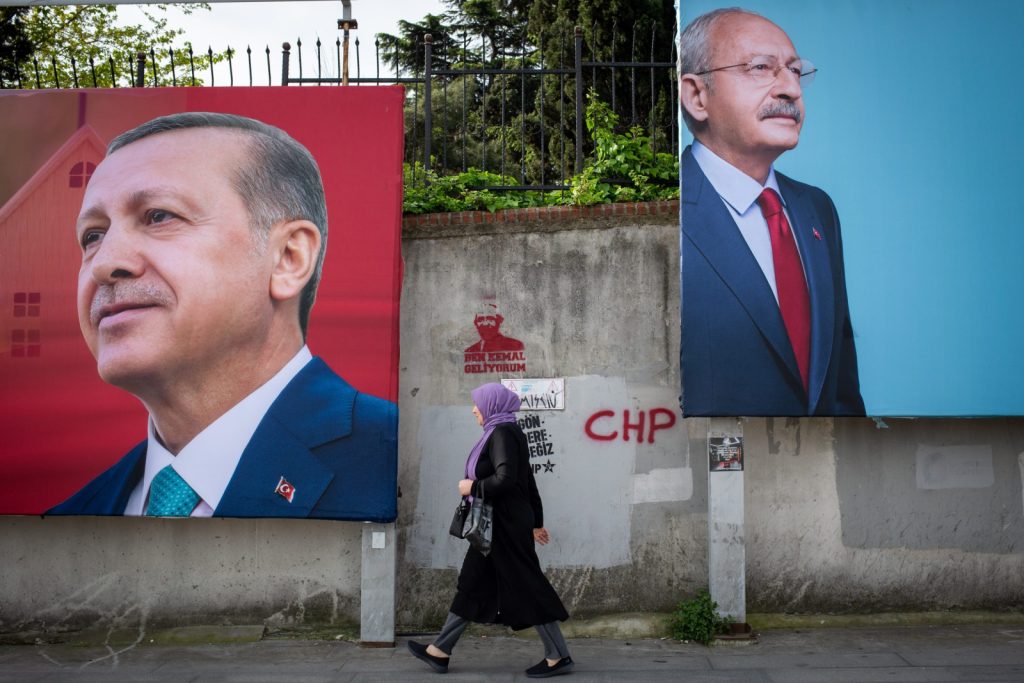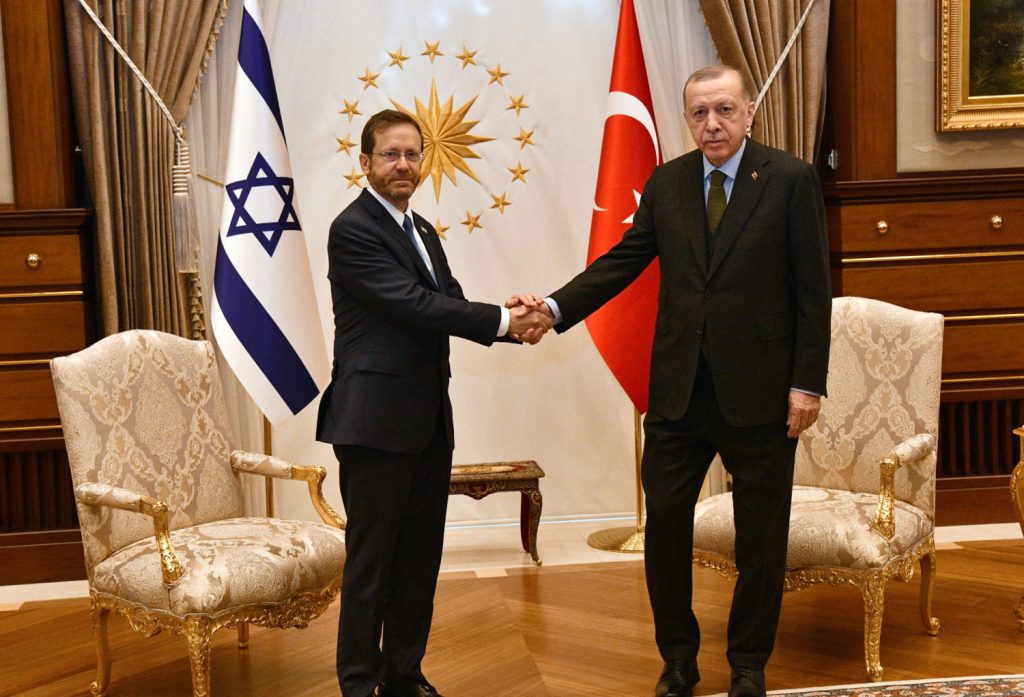Australia/Israel Review
What does Turkey’s election mean for Israel?
May 25, 2023 | Shimon Sherman

Turkey’s High Election Board (YSK) declared on May 15 that the country would be heading to a runoff election in late May after incumbent President Recep Tayyip Erdogan failed to secure more than 50% of the vote in the national election the previous day. In Turkey, a candidate must win a majority of the vote to win the election outright. Otherwise, another election is held between the two leading candidates.
Erdogan faced possibly his most formidable challenge in this election round, after almost 20 years of serving in Turkey’s highest office, from opposition leader Kemal Kilicdaroglu. Opinion polling before the election showed a razor-thin race, with many polls placing Kilicdaroglu above the 50% mark. However, the results told a different story.
YSK said in a statement on May 15 that with 100% of the ballots counted, Erdogan had received 49.51% of the vote, Kilicdaroglu 44.88% and third-place candidate Sinan Ogan, whom many have called a “kingmaker” in the runoff election, 5.17%.
In a post-election speech given from the balcony of the ruling AKP party headquarters, Erdogan thanked his supporters and said he appreciated the “outcome of the national will and the clear lead that was delivered,” signalling his confidence regarding the upcoming May 28 runoff vote.
Meanwhile, Kilicdaroglu delivered a much more sombre message, questioning the integrity of the election process and accusing Erdogan of “blocking the will of Turkey” and turning the election into “a fait accompli”. However, Kilicdaroglu also signalled confidence regarding the run-off election, saying, “If our nation says a second round, we accept it. We will win this election in the second round.”
Despite Kilicdaroglu’s confidence, however, many analysts have predicted that the second round will almost certainly go to Erdogan. Dr. Hay Eytan Cohen Yanarocak, an expert on modern Turkey at the Jerusalem Institute for Strategy and Security (JISS) and the Moshe Dayan Centre at Tel Aviv University, told JNS that in his view Erdogan will “almost certainly” win.
“Relationship has certainly taken a hit”
Gallia Lindenstrauss, a senior research fellow at the Institute for National Security Studies (INSS), agreed, saying: “At this point, Kilicdaroglu’s chances are slim to none.”
For the past few months, this election has mostly pivoted around economic issues, with historic inflation recently plaguing Turkey. In addition, the February earthquake which claimed the lives of more than 50,000 people in Southern Anatolia, and the Government’s slow response to the natural disaster, was another major campaign issue in the election.
Besides economics, Turkey’s elections also have major implications for the country’s foreign policy, including Turkey’s relationship with Israel.
Erdogan currently leads a bloc of mostly Islamist parties in Turkey’s Parliament and has in the past expressed anti-Western sentiment. Furthermore, he has traditionally led a very cold foreign policy towards Israel, which has even elevated into open hostility a few times during his 20-year rule.

Erdogan with Israeli President Herzog: The Turkish leader is no supporter of Israel, but will likely maintain relations for pragmatic reasons (Image: Haim Zach / GPO)
“The Israeli-Turkish relationship has certainly taken a hit under Erdogan’s rule,” said Lindenstrauss. By contrast, Kilicdaroglu has traditionally been seen as a pro-Western candidate. He has on several occasions signalled his interest in pivoting Ankara’s foreign policy more in the direction of the United States and Europe, and further from the Islamist influence which has significantly expanded in Turkey in recent years.
Despite his pro-Western attitude, however, Kilicdaroglu is seen by some experts as a potentially destabilising figure for the Israeli-Turkish relationship.
“Kilicdaroglu has said some very troubling things about Israel, including expressing support for the Palestinian cause, criticising Israel’s arrest of a Turkish citizen on the Temple Mount, and perhaps most troubling, expressing interest in reopening the Mavi Marmara case,” said Lindenstrauss, referring to a diplomatic crisis that erupted following a 2010 Israeli raid on the Turkish ship, which had been attempting to break the Gaza blockade. The crisis was closed in 2016 after Israel offered Turkey $20 million in compensation and Israeli Prime Minister Binyamin Netanyahu officially apologised.
Kilicdaroglu’s rule is also seen as potentially threatening to Israel due to his political partners.
“Kilicdaroglu’s alliance has political leaders who are staunchly anti-Israeli. Erdogan also has anti-Israeli influences, but he is much more politically stable and is therefore much less susceptible to political pressure from his allies. Kilicdaroglu by contrast would be much less independent if he won, and therefore can be more problematic,” Yanarocak told JNS.
Furthermore, Turkey’s recent actions have experts believing that an Erdogan victory will likely lead to continued improvements in the Israeli-Turkish relationship.
“Israel and Turkey have recently renormalised, we have blossoming trade, and good tourism, overall the trajectory is positive in the past year,” said Lindenstrauss. “Israel’s recent actions during the Turkish earthquake were taken very positively in Ankara, and we can expect this to steadily continue improving over time.”
Yanarocak agreed with her assessment, saying, “Erdogan is certainly no supporter of Israel, but he is a deeply practical politician who understands that developing good ties is the pragmatic thing to do.”
Beyond receiving a clear lead in the primary election, Erdogan’s AKP party also managed to secure 35%, allowing the AKP-led people’s alliance to retain its majority in the parliament.






